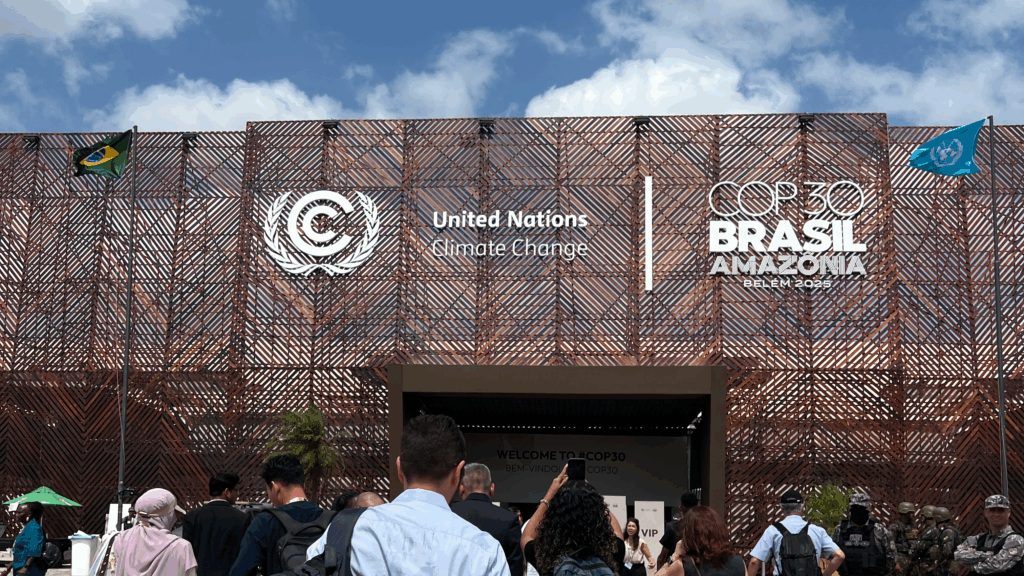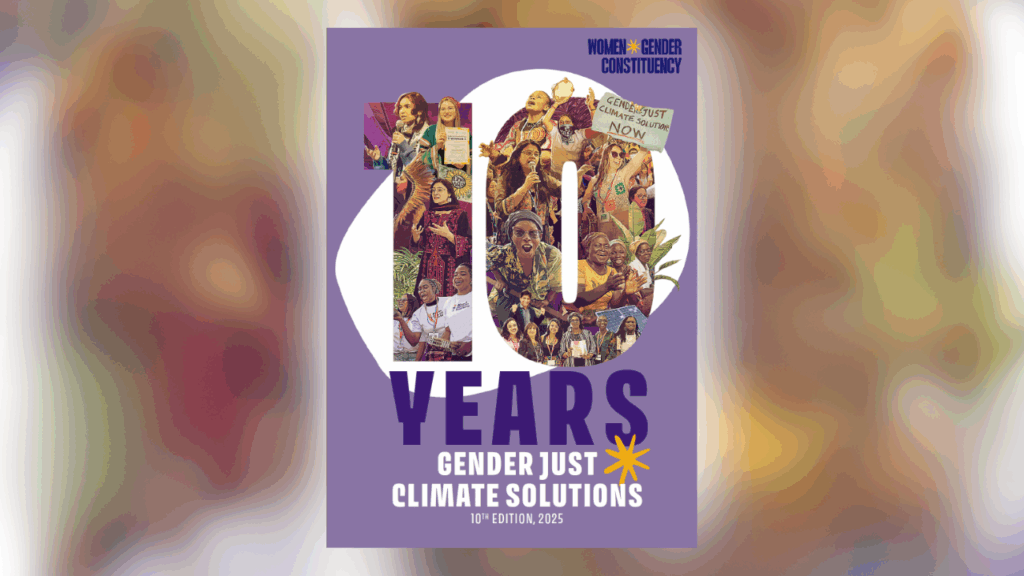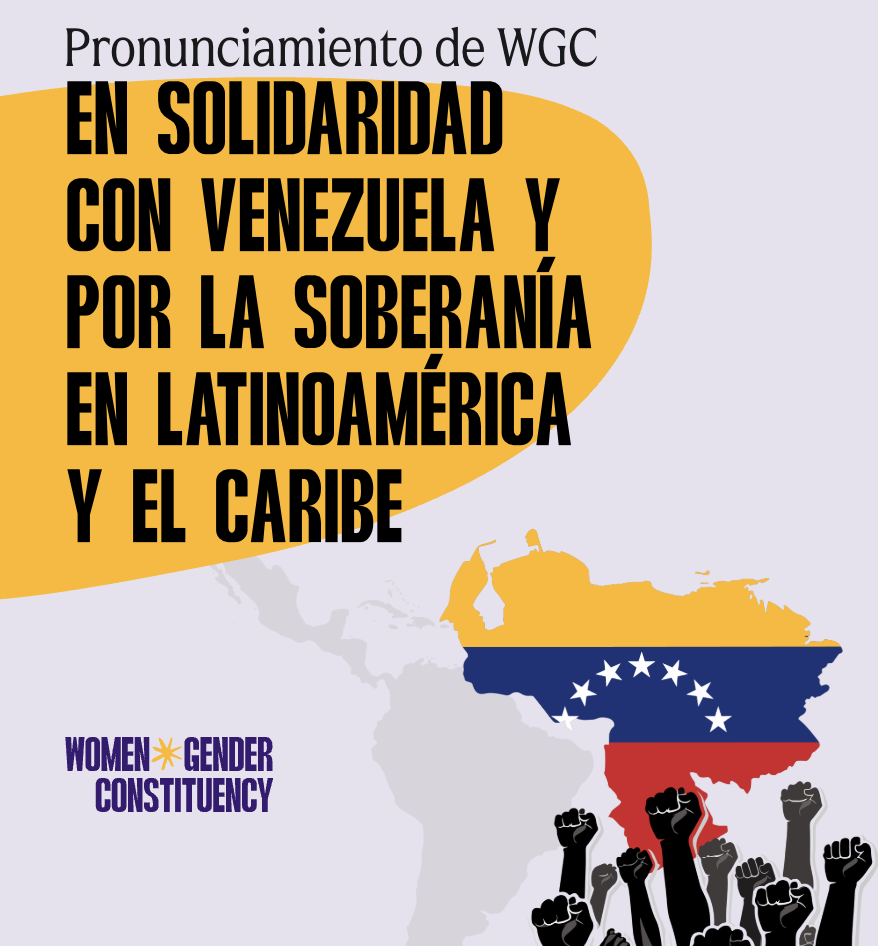
From Bonn to Belém: Feminist Take on SB62
The Women and Gender Constituency left SB62 encouraged by progress on Gender and Just Transition, yet deeply concerned by the continued lack of ambition on adaptation and climate finance.
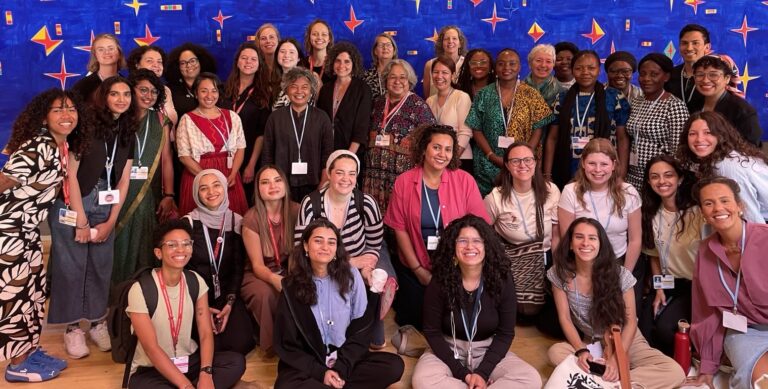
From Bonn to Belém: Feminist Take on SB62

We remain particularly concerned with the shrinking civic space, the continuous censorship of observers, and the lack of transparency which begins to mark this process. This could not be more clear: There is an urgent need for a reform of the UNFCCC space.
The WGC will continue advocating, fighting and standing up in this space, in the face of the rollback and backlash on gender rights, in the face of the ongoing genocide, and in firm recognition that there is no climate justice without human rights, and there is no climate justice without gender justice.
Just Transition
We welcome that Parties agreed a draft decision text to forward to Belem that contains many concrete outcomes for the JTWP to finally move us to implementation. Language including care and informal workers is a step towards a transition that is just. The text emphasises the need to take a gender responsive approach to just transition – it is vital that this remains. This text provides a solid foundation that must be built upon in Brazil. Parties must meet intersessionally, engage with each other constructively proposing bridges and solutions that strengthen this text.
Adaptation
Adaptation negotiations have yet again proved to be a challenge in Bonn. While we welcome that parties were aligned in their determination to provide further guidance to the experts to continue the crucial work in providing a framework to track global progress in adaptation, we are once again disappointed with the lack of tangible progress in National Adaptation Plans and in reviewing the progress of the Adaptation Committee.
We would like to call attention to a trend we keep seeing in adaptation rooms in which language pertaining to gender, Indigenous and local communities, human rights, and racial and ethnic minorities are repeatedly eroded in draft texts, often in favour of generalised language on “social inclusion”, leading to some parties and constituencies having to defend their reintroduction into draft texts. As WGC, we would like to emphasise that no adaptation measure can be impactful without the inclusion and leadership of women in all their diversity across the world. Words carry power and they shape the way we think and act. We must strive to leave behind the utterly unambitious tickbox exercise that is “gender-sensitive”, and move to the higher ambition delivered by the phrase “gender-responsive.” Because adaptation measures must respond to the needs of women and gender-diverse peoples across all communities with the utmost urgency.
It is essential to deepen our understanding of transformative adaptation, which must move beyond rhetoric and take center stage in negotiations. This is not only about responding to climate impacts, but about confronting the very structures that produce vulnerability. Lastly, we expect that the MOI indicators under the UAE Framework are not just data points, but a catalyst for delivering tangible progress on means of implementation on the ground where it’s most needed.
“As WGC, we would like to emphasise that no adaptation measure can be impactful without the inclusion and leadership of women in all their diversity across the world.”
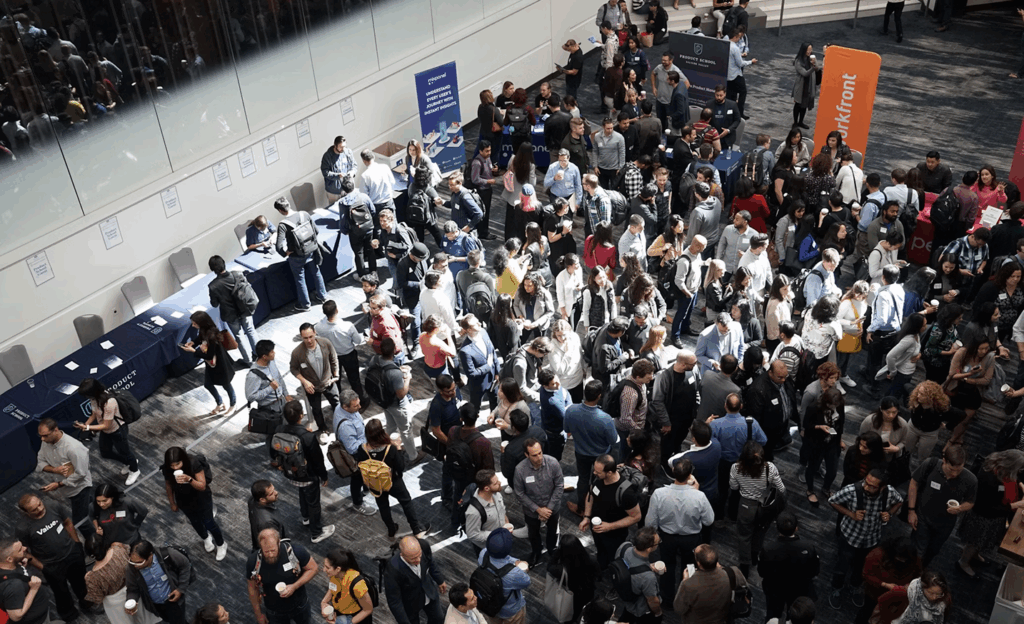
Arrangements for Intergovernmental Meetings (AIM)
Trust in multilateralism is faltering all across, from Parties to observers, and the negotiations on arrangements for intergovernmental meetings, or AIM, is no exception. While initially a seemingly collaborative room, in the eleventh hour of negotiations, we witnessed an alarming threat to the fundamental safety of the UNFCCC space: a proposal to enforce national laws of host countries within UNFCCC venues. This is detrimental to the delicate nature of these processes and to its participants, particularly civil society observers. UN venues and spaces offer safety from persecution and protection of freedom of speech and expression. However, this proposal infringes on the privileges and immunities of the UN.
As civic space shrinks across the world, the refuge the UNFCCC once provided for civil society is disintegrating. We are increasingly facing censorship and ambiguous and inconsistent restrictions, specifically targeting expressions of Palestinian solidarity. AIM negotiations had an opportunity to address and embed principles of freedom of assembly, however, disappointingly, the inclusion and recognition of this freedom was opposed and removed from the final draft.
Lastly, the integrity of UNFCCC is being compromised by corporate capture, often disguised behind Party Overflow badges. AIM offers a window to address and protect the UNFCCC and meaningful participation of observers from the expo-ification of this process. We appreciated the proposal by Parties to place a threshold on overflow, but, yet again, this never made it to the final draft. We are still yet to see concrete provisions to facilitate visa access, a key structural barrier to representation from historically marginalized regions
GST/NDC
It seemed here in Bonn that Parties forgot about the historical decision they collectively took in Dubai two years ago. While the first UAE Dialogue to follow-up on the operationalization of the Global Stocktake should have taken place this year, Parties are still fighting over the scope and modalities of this crucial process. Meanwhile, only 25 new NDCs have been published so far, with many heavy emitting and rich countries falling short of assuming their responsibilities for a just and equitable transition away from fossil fuels.
Consequently, Parties were unable to agree on how to improve the process of the next GST phase, which should happen in 2028. The biggest issue of divergence lies in how to ensure that the next IPCC assessment report, AR7, can be taken into account, although it will probably not be available before the end of 2028. The WGC fully supports the necessity to have enough time to integrate contributions from all continents, particularly from Global South scientists and Indigenous Peoples to mobilize knowledge on gender, equity and justice. But we should be able to use this information for the GST2 and be vigilant of attempts to undermine science.
We therefore continue to demand a transformative approach in shaping the next GST process, one that puts people in the center of consultations and decisions, starting from the local level to reach collective consensus at global level in a structured, transparent and balanced process, building on the tested concept of Global People’s (Climate ) Assemblies. We need new approaches to address structural barriers that prevent citizens in all their diversities to contribute to a just, rights based transition.
WGC Network Members Quotes
As civil society, we have observed Parties in the gender negotiation room over the last two weeks reach consensus, choose compromise, demonstrate consideration for each other and for the process, demonstrating that this space could still be a beacon of hope. We leave Bonn with a draft that, although not perfect, demonstrates the constructive spirit that has primed in this SBs. We urge Parties to carry this forward to COP30. It is critical to have a GAP that will be reflective of the lived experience of women, girls and gender-diverse people at the frontlines of the climate crisis, and that is GAP that is intersectional, resourced, implementable at a national level, comprehensive and inclusive of emerging topics, and that serves as a tool for catalyzing gender-transformative climate action. As civil society, we are watching. – Claudia Rubio, Associate, Women’s Environment and Development Organization
Women, girls, and gender-diverse people around the world are taking action to defend land, water, natural resources, and communities from environmental harm and climate impacts. They are exercising their rights and demanding the fulfillment of the right to a clean, healthy, and sustainable environment. We are now seeing efforts among Parties to finally enhance safety, protection mechanisms, and support for Women Environmental Human Rights Defenders (WEHRDs). As we head toward COP30, the progress made through the formulation of the new Gender Action Plan must not be lost. – Camilla Pollera, Program Associate, Center for International Environmental Law (CIEL)
After 3 decades of climate change negotiations, we do not have time for blanket statements with no real action or commitments attached. At COP30, we look forward to parties establishing the continuity of the adaptation agenda via the Baku Adaptation Roadmap. We also look forward to quality and substantial commitments delivered to the Adaptation Fund. – Dr. Demet Ìntepe, Climate Adaptation and Resilience Expert, Practical Action
AIM reform is closely tied to the larger conversation on UNFCCC reform. What is clear is that business as usual can no longer be the norm. For too long, this process has marginalized and excluded an essential stakeholder: people with disabilities. This is not the first, second, or third time persons with disabilities have called for their own constituency, for representation and inclusion. While for the first time, the AIM draft text “takes note” of this request, we still wait for the actual establishment of a disability constituency. – Nada Elbohi, Egypt
This draft decision holds promise to deliver an urgently needed just transition to frontline people and communities, for example the recognition of people of African descent and to show that multilateralism can deliver positive change. As feminists and civil society, the next few months will be characterised by the fight to make sure this transformative potential comes to fruition in Belem. Deliver the Global Just Transition Mechanism, deliver on implementation and deliver a feminist just transition now. – Sinead Magner, WEDO
We express concern regarding the limited prioritization of discussions on technology, as well as the insufficient time allocated for Parties to adequately review the negotiating texts. This situation poses particular challenges for delegations from developing countries, which often face resource constraints and must cover multiple agenda items with limited personnel. We encourage Parties to consider conducting intersessional consultations in order to facilitate meaningful and substantive outcomes at COP30. – Valeria Pelaez, WECF
We close SB62 with an even clearer understanding: human rights are still not a priority for wealthy countries — nor for many who claim to fight for climate justice. More than 30 years after the 1992 Earth Summit, people remain absent from the center of climate negotiations. But at SB62, we witnessed small signs of hope — ones we will amplify and shed light on. We are committed to keep stretching the rope of climate justice through the defense of human rights – Anonymous
Spotting Gender in the NDC is not a slogan — it is a set of internationally recognized Human rights, grounded in UN standards. These include active participation of women and girls in all their diversity in every stage of the NDC planning and implementation process. As we move toward decarbonisation, we stress: climate policies must not come at the cost of rights of frontline communities and grassroot women. During the GST/NDC’s dialogue, we observed two kinds of NDCs: countries that have the feeling they are doing well and that they will achieve the GST objectives, and countries that are already penalized by the current climate situation, even if they have 70% of renewable energy, the latter demand strong L&D focus. The principle of restorative justice demands consideration of that. We want to particularly stress that the gender-responsive approach is non-negotiable. Without recognizing the crucial effort of women and gender diverse people in NDCs, climate action risks being unjust and unworkable. – Floridea Di Ciommo, cambiaMO|Changing MObility
Our message remains clear: there is no climate justice without gender justice. While we welcome the steps taken toward advancing the Gender Action Plan, the current draft text still requires substantial work to position Parties to deliver an ambitious, effective GAP in Belém. We call on the SBI Chair to convene a second technical workshop to ensure Parties are equipped to deliver an ambitious, inclusive, and implementable GAP in Belém. As feminists, we will continue to push for a Plan that is intersectional, fully funded, and rooted in human rights, and we urge Parties to do the same as we move toward COP30. – Mishy Singano, WEDO
The climate crisis is a health crisis that disproportionately harms girls, women and gender-diverse people. At SB62, Parties recognized the importance of sexual and reproductive health and rights (SRHR), gender-based violence and unpaid care work in the Gender Action Plan. This is a critical first step to strengthen knowledge and capacity on SRHR for gender-transformative climate policies and actions. But we need to see these priorities reflected across agenda items, especially in finance rooms. More work is needed on the road to COP30 to incorporate an age- and gender lens and ensure the GAP centers a human rights, intersectional and intergenerational approach, including meaningful participation of adolescent girls. – Eleanor Blomstrom, Women Deliver
